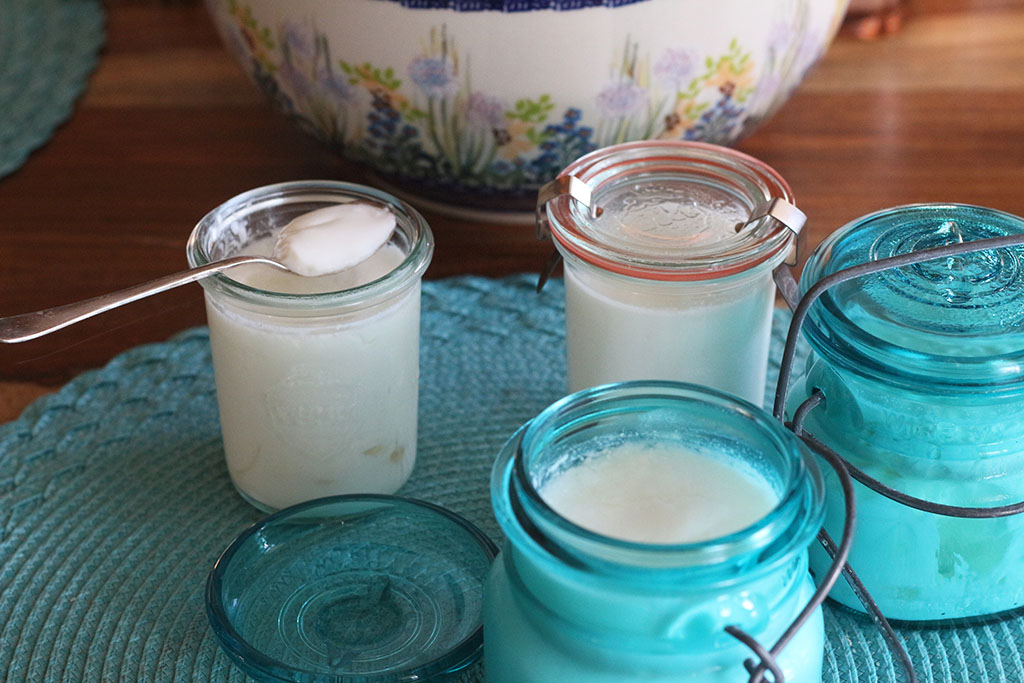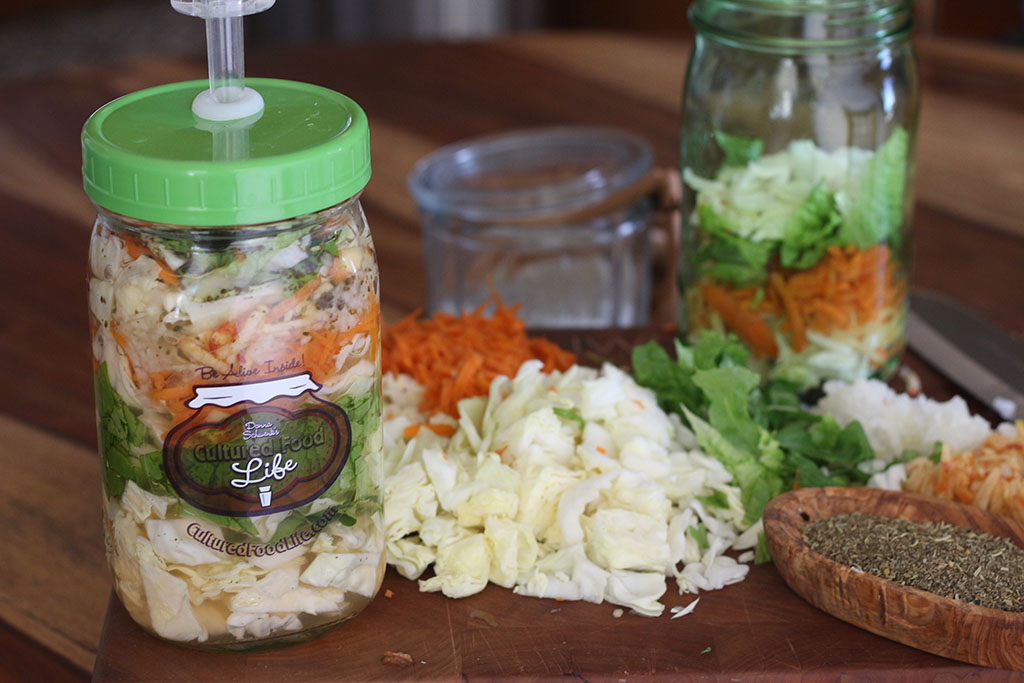
History of Kefir, Kombucha, and Fermented Vegetables
Finding answers

Little did I know that kefir would become my best friend and constant companion and I would become its voice for the billions of healthy life-giving microbes that are contained within it. It has a long history and this ancient food found its way to me when I needed it most. There is always help for all of us on this journey of life no matter what the problem may be. There is guidance supreme that lays within our hearts and all we have to do is ask for it. Our bodies are masterpieces made with precision and grace, and each of us is made with trillions of bacteria that compose more of our body than anything else. All around us we find bacteria - one of the most dominant organisms on this planet. Since something loved us so much to create us this way, I made it my never-ending quest to find the rhyme and reason as to why nobody was really talking about this. What has occurred has been a journey back in time that has healed me, consoled me, and given me tools to live in this world that is ever changing. Never did I think the answers to my prayers lay inside a mason jar that was filled with billions of living organisms. But this is how the answers came to me. There is a blessing in every challenge, a door of opportunity for everything that brings us pain. And now I've lived long enough to see this truth. Here are the stories about the origins of the foods I love the most in this world.
Ancient Foods With Wisdom
History Of Kefir

The most documented story about kefir took place in the Caucasus Mountains, between the Black Sea and the Caspian Sea. Legend has it that the prophet Muhammad claimed that the grains were a gift from Allah. He then gave kefir grains to the people and taught them how to make kefir. The “Grains of the Prophet” were guarded carefully since it was believed that they would lose their strength if the grains were given away to the wrong people, allowing the secret of how to use them to become common knowledge. Throughout the centuries, people occasionally heard strange tales of this unusual beverage which was believed to have “magical” properties. The people in the Caucasus Mountains have been drinking kefir for over a thousand years, and they are known for routinely living to well over 100 years old. Not many people outside the Caucasus region used kefir, and it was mostly forgotten about for hundreds of years until news spread of its use for the treatment of tuberculosis. Russian doctors believed that kefir was beneficial for health and the first scientific studies of kefir were published at the end of the nineteenth century. Unfortunately, the kefir grains required to make milk kefir were extremely difficult to obtain.
Nikolaj Blandov

Scientists can’t duplicate kefir grains
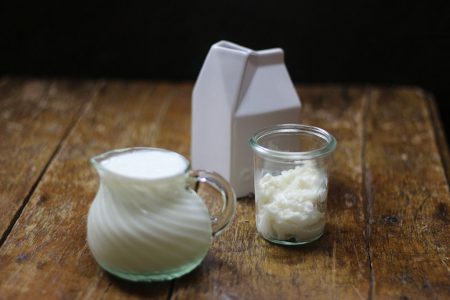
History Of Kombucha
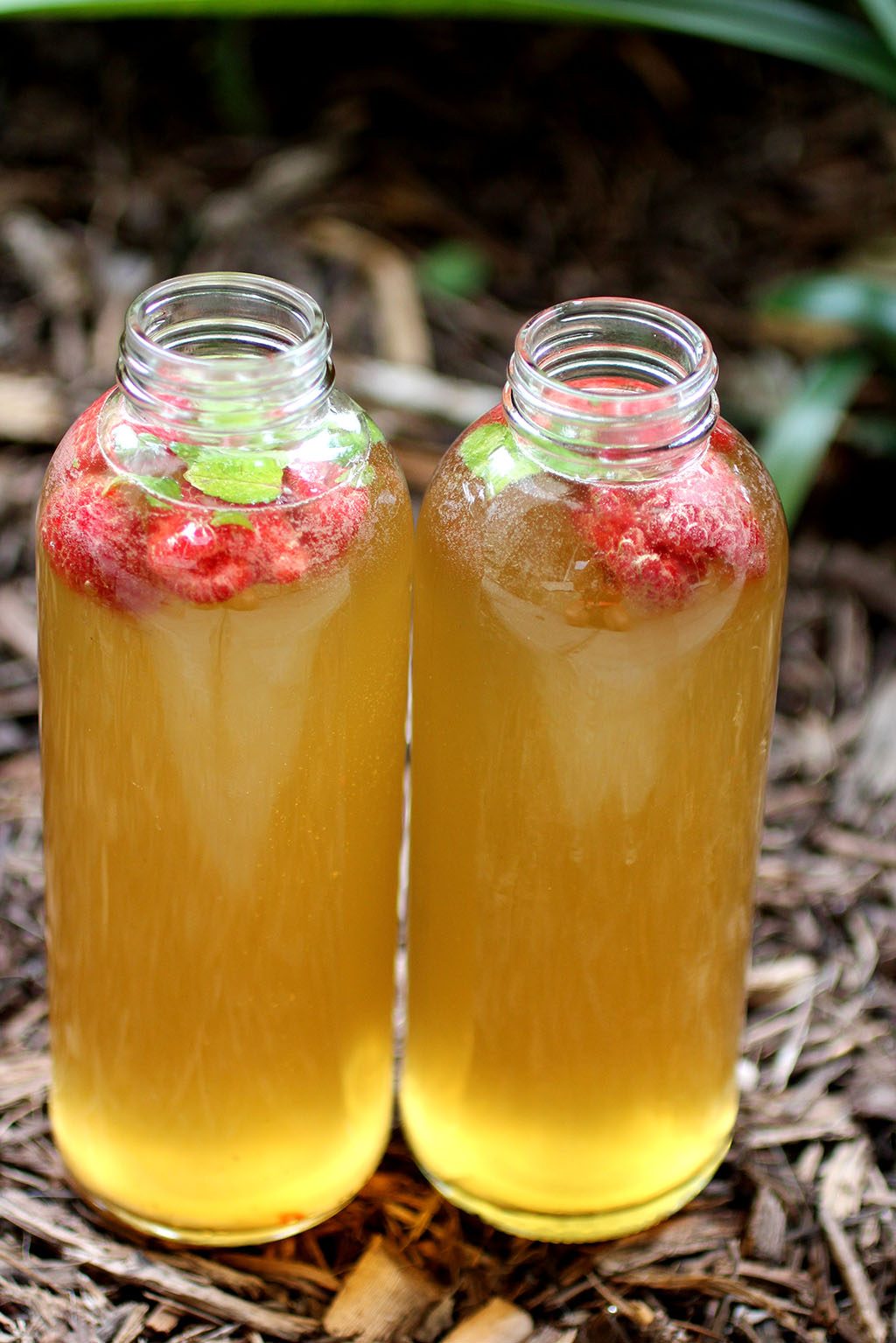
The first story told was about Dr. Kombu, a Korean doctor who brought kombucha to the Japanese Emperor in AD 414. The Samurai, warriors of ancient Japan, were said to carry it in their wine skins as it gave them energy in battle and was a much-coveted drink.
Other stories written throughout history have been told about a fermented, vinegary beverage that filled the travel flasks of Genghis Khan and his armies. From Asia, it traveled to Russia and the rest of Europe. The most definite recorded history of kombucha began in Ukraine and Russia during the late 19th century.
Kombucha tea was attributed to saving Nobel Prize winner Alexsander Solzhenitsyn’s life while in exile in Siberia as documented in his book “Cancer Ward.”
During the Second World War, the Russians were combatting an increase in cancer rates across the country. However, two regions were discovered to be nearly cancer free and this prompted a full-scale investigation.
What they found was the people in these two regions had been drinking Tea Kvass (kombucha) ever since the Czar had introduced it hundreds of years before, and many claimed it was the fermented tea that had kept the people in this region cancer free.
In the 1960s, Swiss research confirmed the health benefits of drinking kombucha. They claimed that kombucha was beneficial for the gut in a similar way to yogurt. This fermented tea has a long history and after two decades of drinking it, my own life experience, the research and hundreds of stories that come to me through emails and posts have convinced me. I have written countless articles with research flowing in about this miraculous fermented tea. I encourage you to check it out for yourself, and not just to believe me. Your own life and internal compass will guide you and then you will know for yourself what is best for you.
History of Fermented Vegetables
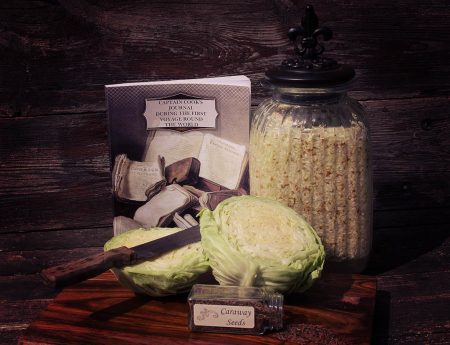
The process of fermenting vegetables has been used for thousands of years in a number of cultures as a method of food preservation. Without clean water and healthy cleanliness practices, fermenting foods became a way to flood the food with healthy bacteria and keep out pathogens. Not only did it preserve the foods for months on end keeping them safe, but it also allowed them to keep their foods through the cold winter months.
Vitamin C and kraut
One such story of fermented vegetables starts with a sea captain by the name of Captain Cook. Captain Cook was one of the first people to make cultured sauerkraut a healing modality. When he took his first vessel and crew on a long voyage in 1768, a violent storm arose. The waves tossed the ship about violently, and many crewmen were injured. To save the men from gangrene, the ship’s doctor made poultices of the cultured cabbage on board to apply to their wounds. Cook was one of the first ship captains to recognize that a lack of vitamin C in a sailor’s diet (due mostly to a lack of fresh fruit and vegetables) caused scurvy, a terrible disease that killed millions of sailors in those times. Captain Cook always sailed with barrels of fermented cabbage (7,860 pounds of sauerkraut, to be exact) which he insisted the sailors eat. Scurvy was never a problem on his ships because the cultured cabbage contained lots of vitamin C. This is good news for you, too. We all need lots of vitamin C on a regular basis and fermented cabbage is a fantastic way to get it. Our immune systems are hungry critters and will gobble up vitamin C and cry for more, especially when we’re stressed or fighting an infection or virus. Vitamin C doesn’t last very long in the body, so we need lots of it and cultured vegetables have tons of vitamin C. Your immune system will thank you if you feed it cultured vegetables regularly.
The Trilogy
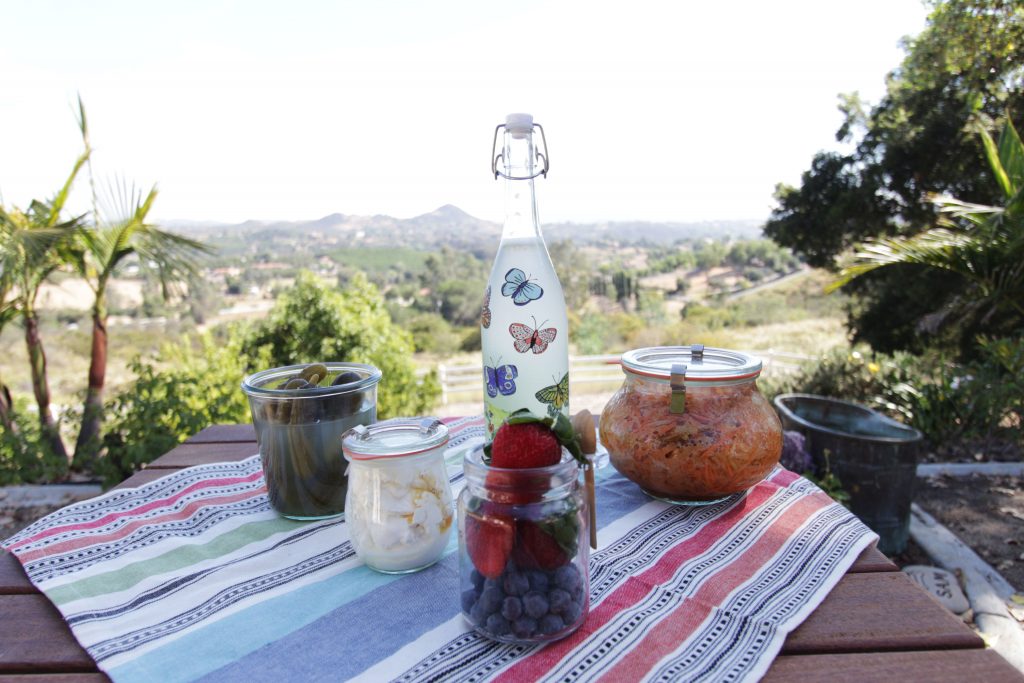
"The natural healing force within each of us is the greatest force in getting well." Hippocrates
Listen To My Podcast
Walking in the footsteps of those who lived hundreds of years before us, hear the legends and myths of cultured foods. These foods changed my life and health, they were profound stories of wisdom that felt like a hand reaching from the great beyond to help me in the here and now. Listen and find out how this wisdom can change your life too.
Are you on the list?
Sign up today and I'll send you my free Getting Started Guide!
Each week I'll send you updates, tips, recipes, and more! You might even be a winner of my weekly giveaway! (starter cultures, memberships, and more!)
Come be a part of my cultured food family!

